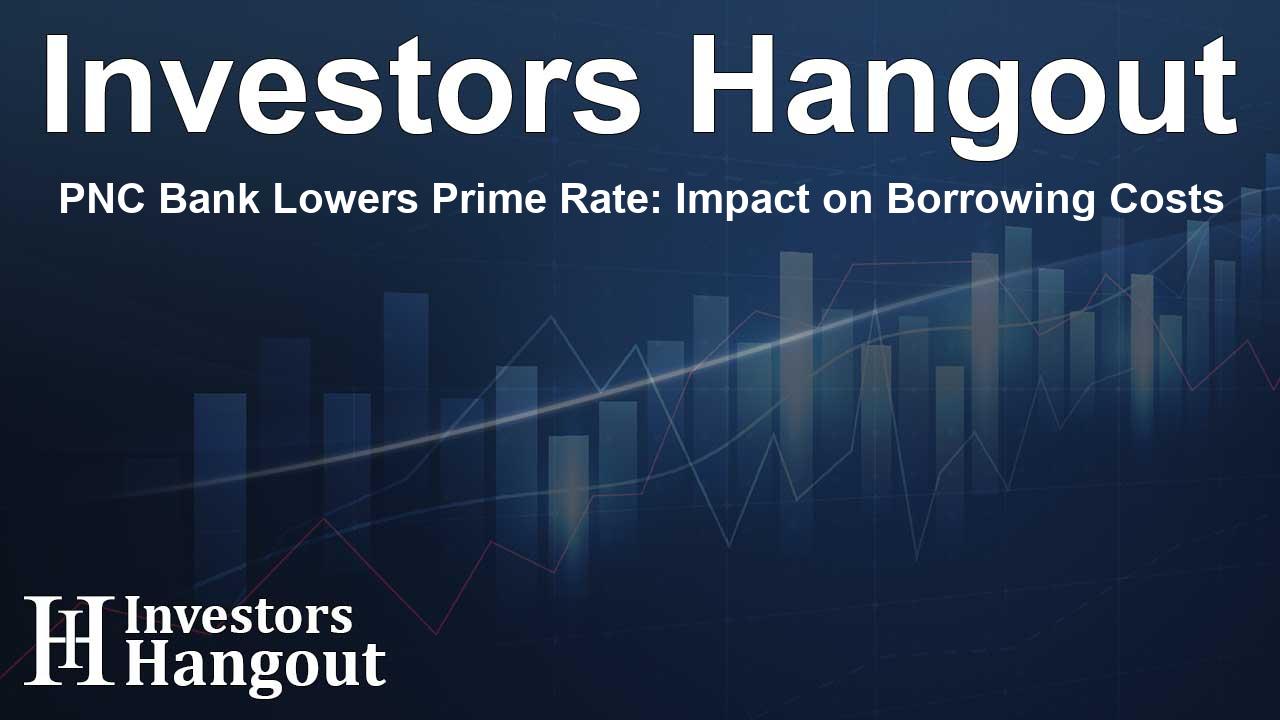PNC Bank Lowers Prime Rate: Impact on Borrowing Costs

PNC Bank Announces New Prime Rate
PNC Bank, N.A. has officially announced a reduction in its prime lending rate, which now stands at 7.75%. This change will take effect immediately, marking a significant shift in borrowing costs for consumers and businesses alike.
Understanding Prime Rate Adjustments
The prime rate, which is the interest rate used by banks to lend to their most creditworthy customers, has a direct impact on various loan types, including mortgages, auto loans, and credit cards. When the prime rate changes, it influences the overall cost of borrowing. The recent adjustment by PNC Bank is likely to make loans more affordable, potentially leading to increased borrowing among consumers and small businesses.
Factors Influencing the Prime Rate
There are several factors that contribute to fluctuations in the prime rate, including changes in the federal funds rate, economic conditions, and inflation rates. In recent months, the financial landscape has seen numerous changes, prompting banks to reevaluate their interest rates to remain competitive and responsive to customer needs.
Potential Impact on Consumers and Businesses
With the decrease in the prime rate to 7.75%, customers may find it easier to secure loans at lower interest rates. This can help stimulate economic growth by encouraging spending and investment. For businesses, especially small and medium-sized enterprises, this reduction can provide the necessary financial support to expand operations, hire more staff, and invest in new technologies.
About PNC Bank, National Association
PNC Bank, National Association plays a vital role within The PNC Financial Services Group, Inc. (NYSE: PNC). As one of the largest diversified financial services institutions, PNC is committed to fostering strong relationships with customers and the communities it serves. The bank's robust portfolio includes a range of services such as retail banking, business banking, corporate banking, real estate finance, and wealth management.
Contact Information for PNC Bank
For further inquiries, customers can reach out to PNC Bank’s representative, Kristen Pillitteri, at (412) 762-4550. PNC values transparency and customer communication, making it easy for clients to connect with their banking representatives.
Frequently Asked Questions
What is the current prime rate at PNC Bank?
The current prime lending rate at PNC Bank is 7.75%.
How often does PNC Bank adjust its prime rate?
PNC Bank adjusts its prime rate as necessary, typically in response to changes in the federal funds rate and overall economic conditions.
What types of loans are affected by the prime rate?
Various loans, including mortgages, auto loans, and personal loans, are influenced by the prime rate.
How can customers benefit from a lower prime rate?
A lower prime rate can lead to reduced interest rates on loans, making borrowing more affordable for consumers and businesses.
What services does PNC Bank offer?
PNC Bank provides a comprehensive range of financial services, including retail banking, business banking, corporate banking, wealth management, and asset management.
About The Author
Contact Addison Perry privately here. Or send an email with ATTN: Addison Perry as the subject to contact@investorshangout.com.
About Investors Hangout
Investors Hangout is a leading online stock forum for financial discussion and learning, offering a wide range of free tools and resources. It draws in traders of all levels, who exchange market knowledge, investigate trading tactics, and keep an eye on industry developments in real time. Featuring financial articles, stock message boards, quotes, charts, company profiles, and live news updates. Through cooperative learning and a wealth of informational resources, it helps users from novices creating their first portfolios to experts honing their techniques. Join Investors Hangout today: https://investorshangout.com/
The content of this article is based on factual, publicly available information and does not represent legal, financial, or investment advice. Investors Hangout does not offer financial advice, and the author is not a licensed financial advisor. Consult a qualified advisor before making any financial or investment decisions based on this article. This article should not be considered advice to purchase, sell, or hold any securities or other investments. If any of the material provided here is inaccurate, please contact us for corrections.
